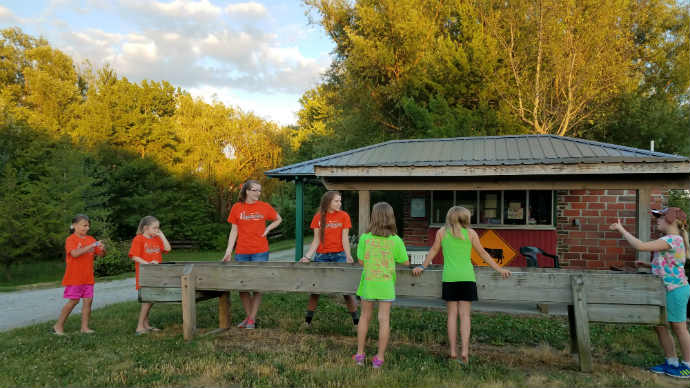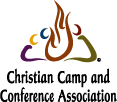What Are Your Plans for Christmas?
“Well Trey, what are your plans for Christmas?”
It was three days before Christmas and Trey was a fifteen year old who had been attending youth programs at the urban church where I served. His single mother, a lay preacher in the city, went on to say, “You had better start making plans. Why don’t you go to your dad’s place for Christmas?”
Dad lived a few blocks away in a modest home with his current wife and several younger children. His older son was somewhat of a leftover from a relationship which hadn’t worked out a decade and a half earlier. Over the years, Trey was at best a diminished priority to dad as another marriage and younger children took precedence.
“Dad doesn’t have anything for me” Trey replied.
“Well, neither do I so you had better be making some plans for Christmas,” said his mother.
Trey was one of a dozen or so students attending a local alternative school who had attached themselves to the fringe of our church’s youth program. Most lived much unstructured, purposeless lives, showing up for an abbreviated school day due to court ordered coercion. The remainder of each day was spent sleeping, watching unsupervised television, and then spending later evenings and nights hanging out with friends who filled the void left by absentee family members. As a social safety net, the ever available gangs offered the measure of acceptance, belonging, safety, and solidarity lacking at home. Trey, however, had a sense of the dangers of gang involvement. He also knew the personal danger facing him every day due to his lack of support and the safety which would have been afforded to him by gang members. He would at times call me to pick him up at the school bus stop and transport him to the decaying house where he shared that small upstairs apartment with his mother, because he feared harassment by gang members.
Trey’s story, though unique to his situation, has many similarities to that of young people in nearly every strata of society. Abandoned physically, socially, or emotionally, there are needs which will not be met though any institution or program, as helpful as those things may be.
As I considered Trey’s situation on that cold December day, I thought back to my earlier years of youth ministry, just after seminary. An assumption in those days was that vital to any quality home was the presence of two committed parents. Be design that will always be the model. It, however, occurred to me that an increasing number of the youth with whom I interacted, would be blessed to have even one parent, or grandparent, or committed adult in their life. In some cases, even resident parents were in effect absent due to social distractions, emotional instability or economic and career demands.
It would be an understatement to say that parenthood has been devalued. A few years ago the lack of importance our culture places on parenting was once again revealed when a prominent media figure referred to the wife of a presidential candidate by saying that the woman had “never worked a day in her life”. This, in spite of the fact that the candidate’s wife successfully raised five sons who were all married and living productive adult lives, was quite an ignorant remark.
Yes, parenting has been devalued, and sometimes even substituted with artificial and deficient surrogates. Most parents have at times relied on some of the substitutes because the alternatives have so much become a part of our modern lifestyles. Although not always bad, substitutes can easily and in some cases quickly replace the importance of a parent’s time, commitment, and love. Next week we will look at some common substitutes for parenting.
Environmental Science Summer Day Camps

Weekly themes focusing on water quality, wetlands, and prairies for 6th-8th Graders!
Tuesdays – June 23 – July 21
• 9:00 a.m – 5:00 p.m. (Lunch provided,)
• Cost: $25.00.
• Grades: entering 6th – 8th grade
• Group size limited to 10 (minimum 3 campers)
Camp Appanoose is committed to: Selecting and training quality staff, Initial background checks on staff and volunteers, maintaining professional standards which include membership in the Christian Camp and Conference Association/USA, as well as necessary licensing and outfitting permits, and high standards for health and safety in this year of global pandemic.
Mentoring Relationships
As mentioned last week, an opportunity to serve as a chaplain came during my years in graduate school. What began as a volunteer position soon grew into a staff position, as the church which I attended offered to give financial support. With a great deal of enthusiasm, I entered into my work, realizing that there would be many opportunities to apply what was presented in the classroom and in textbooks to actual life situations. As an education major and later sociology major, I had learned to assess needs and then design programs to meet those needs.
Serving a rather transient population, it became apparent that structured lessons or visiting formats needed to take into account that most of the young people with whom we worked would only be with us for around four to eight weeks. Among other things I began to offer a four lesson study from the Gospel of John which was designed to introduce young people to the living Christ. Each lesson was to be completed prior to an individual visit from the chaplain. Upon completion, I, or another chaplain, would schedule an hour to go over the lesson and then in what time remained, there could be the chance to visit about personal issues, family or plans for the future. With some, I found that response would be best if I brought along a game or puzzle which we could work at together.
Just as in my previous experiences on the east side of Des Moines, I began to notice that personal investment in the lives of young people whom I served, was of great value and often opened doors to the issues of their hearts. Programs, instruction, incentives and special activities have great value. They may provide direction, purpose, healthy boundaries, and opportunity, but the quality relationships which are established produce the greatest benefit.
Why is the subject of relationships so important today? Several reasons could be given. Perhaps most significant is the continuing disintegration of the family and the de-valuing of parenting. Of the three institutions divinely established, the family is first and bears primary responsibility for the nurture and provision of its members. Marriage, a covenant relationship between a man and a woman, is designed to be monogamous for the duration of life, providing a measure of stability for the dynamics of parenting, as well as other responsibilities which arise. Government, on the other hand, was established for the protection of its citizens from those who would do harm, and for the maintenance of societal order. It was never intended, by design, to be the primary nurturer of children and youth. The church was established by Christ in the New Testament era as a spiritual community, penetrating all ethnic and social boundaries, bringing unity to believers for the purpose of common nurture, welfare, and mission. Both the family and the church are most effective when they facilitate healthy relationships and communicate truth through those same relationships.
This summer ten to twelve young adults will be entering into a week or more of mentoring relationships with the young people who attend programs at Camp Appanoose. We realize that the relationships which are formed, the examples which are set, the truth which is disseminated, and anticipate yes, the slice of camp life which is shared, may have life changing results for young people attending camp. In Deuteronomy 6, Moses made it abundantly clear that the continuation of truth was not simply a matter of didactic instruction, but was best accomplished within a life context. Camp Appanoose structures each program around small groups led by a trained and vetted counselor.
In 2020, the counseling staff comes from four states, several Christian colleges, and at least eight individual local churches. They will be given training for a few days before camp begins. Three will be quarantining with us for two weeks prior to camp in order to follow guidance offered by the state of Iowa for those coming from out of state. One staff person will have full time responsibility in continual sanitizing and disinfecting. Everyone will have their temperature checked each morning.
Pray for us and for our campers as we operate in a rather precarious time. Our lives as well as this ministry are in His hands. Perhaps in these times we are able to recognize this truth more than at other times. We look forward to what God would choose to do in this unique season of our lives.
